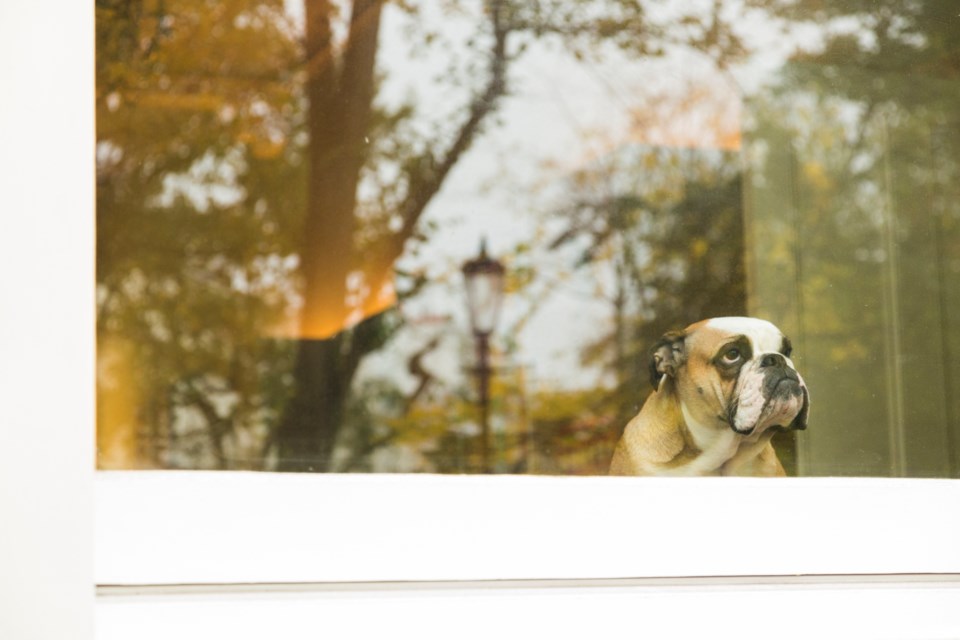Ever since being a kid, I didn't like fall. And I'm pretty sure I'm not alone.
What's there to like? Everything is dying. Beautiful, rich summer colours gradually shade until everything – trees, land, skies – meet at the middle grey point and the world turns monochrome for many, many months.
Fall always felt to me like the end, the time when exciting things are not over yet, but you know that soon they will be. Soon everything will freeze. Once nights are cold and trees are bald, even though many flowers are still blooming and the afternoon sun still has that warm touch in it, you know that it's almost here. And to me, it makes fall even more tragic.
Summer always felt like a short separate life. Filled with adventures, holidays, heat and way more smiles than winters, summers naturally felt happier. I guess I just felt happier, but it wasn't due to some external circumstances. Even summers that brought bad news of all kinds I remember as better times than flawless winters, let alone falls.
In St. Petersburg fall is also saturated with rain, the tears of mourning Mother Nature. (I thought in my head when I was a romantic teen, in love with classic literature). My views and visions changed as I grew up, but my feelings about fall only got worse.
Saskatchewan's generous sun helps fall be more bearable. And once I put the fall sadness aside, I notice the beauty of golden leaves, illuminated by cupper rays and framed by light blue sky. I notice the rich fall forest smells, and I appreciate the quietness and calmness of the season. But it still is fall, and once it's here like it is now, I do feel off every year.
Apparently, all these sad fall-winter feelings are pretty common.
Seasonal affective disorder or SAD is something that's been affecting about two to three per cent of Canadians, and about 15 per cent of the population experiences it in a milder form at some point in their lives, according to Canadian Psychological Association. And the pandemic with its challenges, stresses and burnouts also associated with seasonal changes wouldn't improve how we feel once leaves cover the ground.
I've never been diagnosed with SAD, I just feel different and sad every fall. But I often catch myself experiencing some of the common symptoms. In the summer I'm good with six to eight hours of sleep, but now I feel like sleeping all the time, sometimes having trouble getting a good night's sleep. With the same amount of activities and duties I'm more tired (in cases of SAD, the tiredness may prevent people from performing their daily tasks). Being a generally positive person, I do feel down way too often.
Other common symptoms of SAD include feelings of hopelessness, irritancy and impatience, stress, changes in appetite and weight gain, tendency to stay alone and avoid activities that were joyful before, even things like cuddling, sex or other physical contacts.
That fall hopelessness and loneliness are the worst for me. Even though it seems to be impossible to be alone on the planet with seven billion other people, sometimes it feels there is no one there who'd understand.
There is no firm explanation as to why people experience the seasonal affective disorder. Scientists connect it with the lack of sunlight during shorter fall and winter days, however, some people rarely experience the same symptoms in summer and more often in spring. Another part of the explanation is the shift in our biological internal clock that occurs as seasons change. That often puts us out of rhythm with our schedule. (Probably trying to help me with writing a column, my own life threw me a great example: Tuesday morning I got up to go to the pool, as I do every day, got ready, came to the leisure centre, changed and got in the water to realize that I was an hour late. So I got out and left, hoping that my inner clock will synchronize with the real one sooner rather than later).
Light therapy has been proven to help people experiencing SAD. Special artificial lights mimic sun rays, resulting in changes in the brain and thus improving mood and helping relieve SAD symptoms. Physical activity, outdoor times, a healthy diet, balanced thinking techniques and stress management also help control mild conditions. Besides, even when feeling lonely, staying connected is important. There is always someone to help, be it a mental health specialist, friend, family or a stranger on a bench willing to have a random conversation. In some cases, medications and counselling are needed to manage seasonal depression.
One way or the other, there is always a way out. But please, remember, if you do have some of the symptoms and if seasonal changes seriously affect your life from year to year, talk to the doctor, so they would recommend what's best for you.




